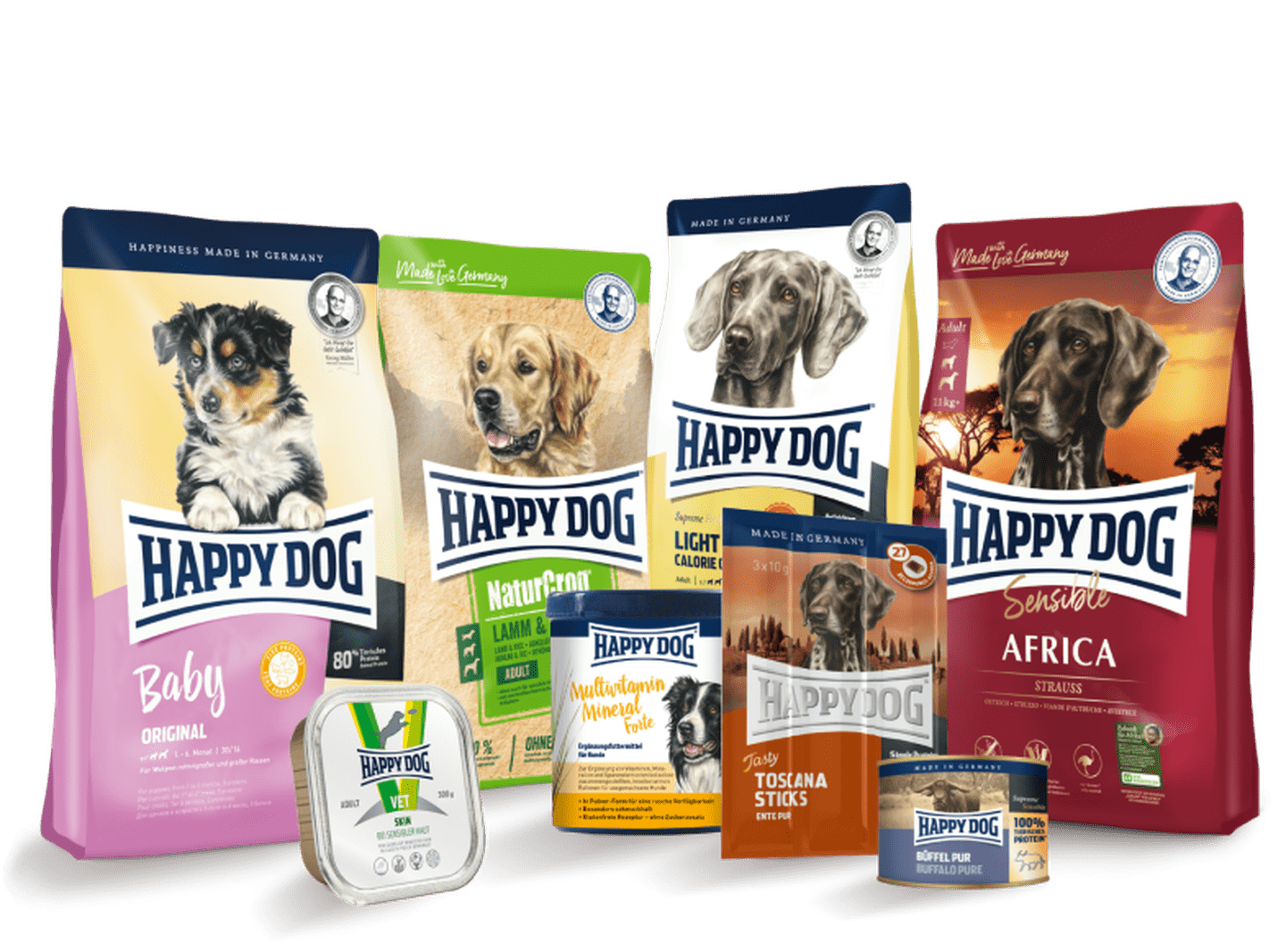
Food Intolerance in Dogs – Understanding Causes & Finding the Right Diet
Share
When “Good Food” Still Causes Problems
Even with the best-quality dog food, some dogs react with itching, stomach upset, or recurring ear and skin problems. These signs often point to a food intolerance or allergy — a condition where the body overreacts to certain proteins or ingredients that are otherwise harmless for most dogs.
If your dog struggles with sensitivities, shifting to a carefully chosen hypoallergenic dog food, a novel protein dog food, or a focused single protein dog food used as part of an elimination diet can help identify safe ingredients and calm symptoms long term.
Allergy or Intolerance – What’s the Difference?
Both allergies and intolerances cause similar symptoms, but they develop in different ways:
- Food allergies trigger an immune reaction — the body recognises a protein as “foreign” and attacks it, causing inflammation, itching, and skin irritation.
- Food intolerances are non-immune reactions, often caused by missing digestive enzymes or difficulty breaking down certain nutrients such as fats or proteins.
In dogs, food allergies are relatively common — around one in ten canine allergies is food-related. Symptoms often appear on the skin: intense itching around the face, ears, belly, and legs, or recurrent ear infections. Some dogs also develop digestive symptoms like gas, diarrhoea, or vomiting soon after eating.
Diagnosing a Food Allergy: The Elimination Diet
When an allergy is suspected, your vet may recommend an elimination diet — feeding a single, novel protein and carbohydrate source that your dog has never eaten before. This helps identify which ingredients are safe and which to avoid.
The process typically takes 6 to 8 weeks, though some cases require up to 12 weeks for clear results. If symptoms improve or disappear, the diagnosis is confirmed.
Creating a home-cooked elimination diet is possible but rarely practical long term. Balancing nutrients precisely can be challenging, which is why complete veterinary or specialised hypoallergenic dog food options are a safer choice.
Choosing the Right Food for Sensitivities
Dogs develop allergies only to ingredients their bodies have already encountered. Therefore, switching to a novel protein diet — one containing an entirely new source of animal protein — can dramatically reduce inflammation and itching.
Our Happy Dog VET Hypersensitivity line is formulated with rare and highly digestible ingredients, designed specifically for elimination diet trials and long-term management of food sensitivities. Each recipe provides complete nutrition while being gentle on digestion and skin.
- VET Dry Hypersensitivity – formulated with quail and chestnut, ideal for food allergy elimination and maintenance.
Novel Proteins — Nature’s Gentle Alternative
 For dogs that don’t require a veterinary diet, feeding novel proteins like ostrich, kangaroo, goat, or horse can be a simple and effective way to support skin and gut health.
These proteins are rarely found in traditional dog foods, meaning the immune system is less likely to react.
For dogs that don’t require a veterinary diet, feeding novel proteins like ostrich, kangaroo, goat, or horse can be a simple and effective way to support skin and gut health.
These proteins are rarely found in traditional dog foods, meaning the immune system is less likely to react.
Our Happy Dog Sensible single protein dog food recipes are formulated precisely for these cases, providing complete, balanced nutrition that soothes sensitive stomachs without compromise.
With — no soya, no added sugar, and no artificial colours or preservatives. They are a strong option when transitioning from an elimination diet to a long-term, hypoallergenic dog food plan.
- Wet Food - 100% Pure Meat Options
- Wet Kangaroo – gentle and lean, perfect for food rotations and sensitive digestion.
- Wet Ostrich – novel and nutrient-rich, ideal for allergy-prone dogs.
- Wet Goat – naturally soothing and easy to digest.
- Wet Horse (Montana) – made with 100% pure horse meat, ideal for elimination diets.
- Dry Food Options
- Dry Ostrich – complete diet using low-allergen ostrich as the sole protein source.
- Dry Horse – formulated for long-term maintenance and digestive tolerance.
Can You Prevent Food Allergies?
Feeding hypoallergenic food before any symptoms appear isn’t recommended. Doing so can reduce the number of “safe” proteins available if a true allergy develops later. Instead, feed a varied, high-quality diet and introduce novel proteins only if your vet recommends it for intolerance or elimination diet testing.
Managing Enzyme Deficiency (EPI)
Some dogs don’t tolerate food because they lack the digestive enzymes needed to process it properly. This condition, known as exocrine pancreatic insufficiency (EPI), can lead to weight loss despite an increased appetite and frequent, large stools. In such cases, feeding highly digestible, low-fat diets and supplementing with enzymes under veterinary advice can help restore normal digestion.
- VET Dry Intestinal Low Fat – ultra-low fat diet ideal for supporting recovery in dogs with chronic pancreatitis or enzyme deficiency.
From elimination diets to gentle novel protein dog food, find the right approach to calm your dog’s skin and stomach. You can also try our free trial pack to see how your dog responds.
Explore Sensitive & Hypoallergenic Diets


